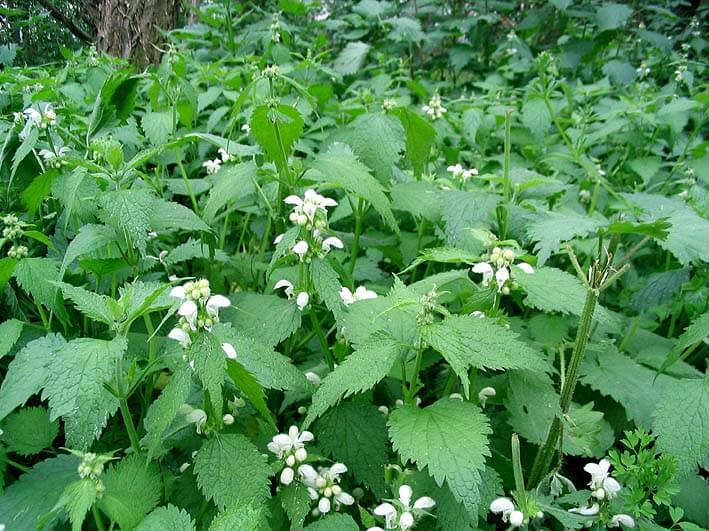Natural infusions for constipation

Usually, the lack of a good healthy diet and daily exercise are the most common reasons for the appearance of constipation according to this study by the Complejo Hospitalario of the Hospital of Santiago de Compostela. Thus, it can lead to intestinal discomfort, pain, and belly swelling, among other problems. So, here are the best natural infusions for constipation. Keep reading and find out!
What’s constipation and what causes it?
This is a condition whereby you’re not able to have regular bowel movements or have problems completely emptying the bowels according to the information obtained by the National Library of Medicine of the USA. So, the most common causes are:
- Poor nutrition
- Eating foods with too little fiber
- A sedentary lifestyle
- Lack of exercise
In some people, constipation can be caused by other conditions beyond those detailed above, like:
- Liver disease
- Bowel obstruction
- Pregnancy
- Menopause

The symptoms of constipation include:
- Difficulty emptying the bowels
- Painful bowel movements
- Abdominal inflammation
- Irregular bowel movements
What are the best infusions for constipation?
One of the possible solutions to combat this situation can be through the help of natural remedies such as plants with laxative properties. Therefore, these natural infusions for constipation stand out among other remedies, which together with daily exercise, a good diet and two liters of water daily will be your perfect ally against this problem.
Next, we will show you the main infusions with laxative properties made from natural ingredients such as flax, mallow or nettle. However, you must consult a doctor if constipation lingers.

See also: 10 Natural Laxatives for Constipation
1. Flax infusions for constipation
The seeds of the flax plant have a reputation for fighting constipation in a few days. This study by the Federal Flurinense University of Brazil corroborates it, and also adds its great work as an antioxidant.
Ingredients
- 1 c. of water
- 1 tbsp. flax seeds
Directions
- Firstly, boil the water for 3 minutes, remove from the heat, toss in the flax seeds and let cool for a few minutes. Then strain and drink. You can sweeten this infusion with a little honey.
- Drink a cup before breakfast and then another in the afternoon for an entire week.
2. Oat bran infusion
This remedy allows you to quickly have a bowel movement and avoid constipation according to this study by Hospital Fuenfría in Madrid. It’s healing, and, in addition, has a pleasant taste.
Ingredients
- 1 c. water
- 1 tbsp oat bran
Directions
- Firstly, combine both ingredients and boil for 5 minutes. Then remove from heat and let it cool. Finally, strain and drink.
3. Nettle infusions for constipation
Some people believe that one of the benefits of this plant is to help with bowel movements to promote stool elimination. However, there’s no scientific evidence to support this claim. If you still want to try it:
Ingredients
- 1 handful nettle leaves
- 1 c. water
Directions
- Firstly, boil the leaves for 15 minutes, remove from heat and let cool for 10 more minutes, then strain and drink. Then, drink a glass on an empty stomach and two more after your main meals.

4. Aloe vera infusion
Escuela Nacional de Ciencias Biologicas in Mexico assures in this research that aloe vera could relieve constipation thanks to its aloin content.
Ingredients
- 1 piece aloe vera (the size of your palm)
- 2 c. water
- The juice of ½ a lemon
Directions
- Firstly, boil the aloe vera in the water for a few minutes. Then remove from heat and mix in a blender. Now, add the lemon juice and drink before it cools. Finally, we recommend drinking a cup on an empty stomach and then another after lunch or dinner.
5. Mallow infusion
So, like the ones above, this plant can be used to relieve constipation, according to this report by Universidad de Zaragoza.
Ingredients
- 1 handful mallow leaves
- 1 c. water
Directions
- Firstly, boil the water and the leaves for 10 minutes, then remove them from the heat and let it all brew before filtering. Then, drink up to three times a day. Finally, it’ll help you evacuate toxins quicker and digest foods better.
See also: 6 Ways to Use Aloe Vera for Better Health
6. Verbena infusions for constipation
Generally, this plant is a great anti-inflammatory, analgesic and laxative tonic, according to this study from the Universidad Nacional Autonoma National de Mexico. So, even though it’s very effective in relieving both constipation and gastritis, it’s not recommended for people with hyperthyroidism.
Ingredients
- 1 c. boiling water
- 2 tsp dried verbena flowers
Directions
- Firstly, boil the water, then toss in the flowers and let cool for 10 minutes before filtering and drinking. Then, drink twice a day.

7. Licorice infusion
According to this study published by the International Acupuncture Magazine, it also helps improve the coughing process. However, its intake isn’t usually recommended because it can lead to fluid retention or hypertension.
Ingredients
- 1 tsp. dried licorice
- 1 c. water
Directions
- Firstly, boil for 15 minutes and let it brew. Drink one cup daily.

8. Plantago infusion
Just like the previous ones, this plant is also rich in mucilage and thus recommended for cases of chronic constipation, as stated in this research conducted by the Center for Drug Research and Development (CIDEM) in Havana, Cuba. So, note that you must drink plenty of water for the best results.
Ingredients
- 1 tbsp of Plantago
- 1 c. water
Directions
- Firstly, make a tea, let cool, strain and drink before going to bed each night.
Finally, these natural infusions for constipation are great for getting rid of the stomach pain that might affect you on a daily basis. However, you must consult a doctor if the problem becomes chronic.
All cited sources were thoroughly reviewed by our team to ensure their quality, reliability, currency, and validity. The bibliography of this article was considered reliable and of academic or scientific accuracy.
- Attaluri, A., Donahoe, R., Valestin, J., Brown, K., & Rao, S. S. C. (2011). Randomised clinical trial: Dried plums (prunes) vs. psyllium for constipation. Alimentary Pharmacology and Therapeutics. https://doi.org/10.1111/j.1365-2036.2011.04594.x
- Higgins, P. D. R., & Johanson, J. F. (2004). Epidemiology of Constipation in North America: A Systematic Review. American Journal of Gastroenterology. https://doi.org/10.1111/j.1572-0241.2004.04114.x
- Narotzki, B., Reznick, A. Z., Aizenbud, D., & Levy, Y. (2012). Green tea: A promising natural product in oral health. Archives of Oral Biology. https://doi.org/10.1016/j.archoralbio.2011.11.017
This text is provided for informational purposes only and does not replace consultation with a professional. If in doubt, consult your specialist.








